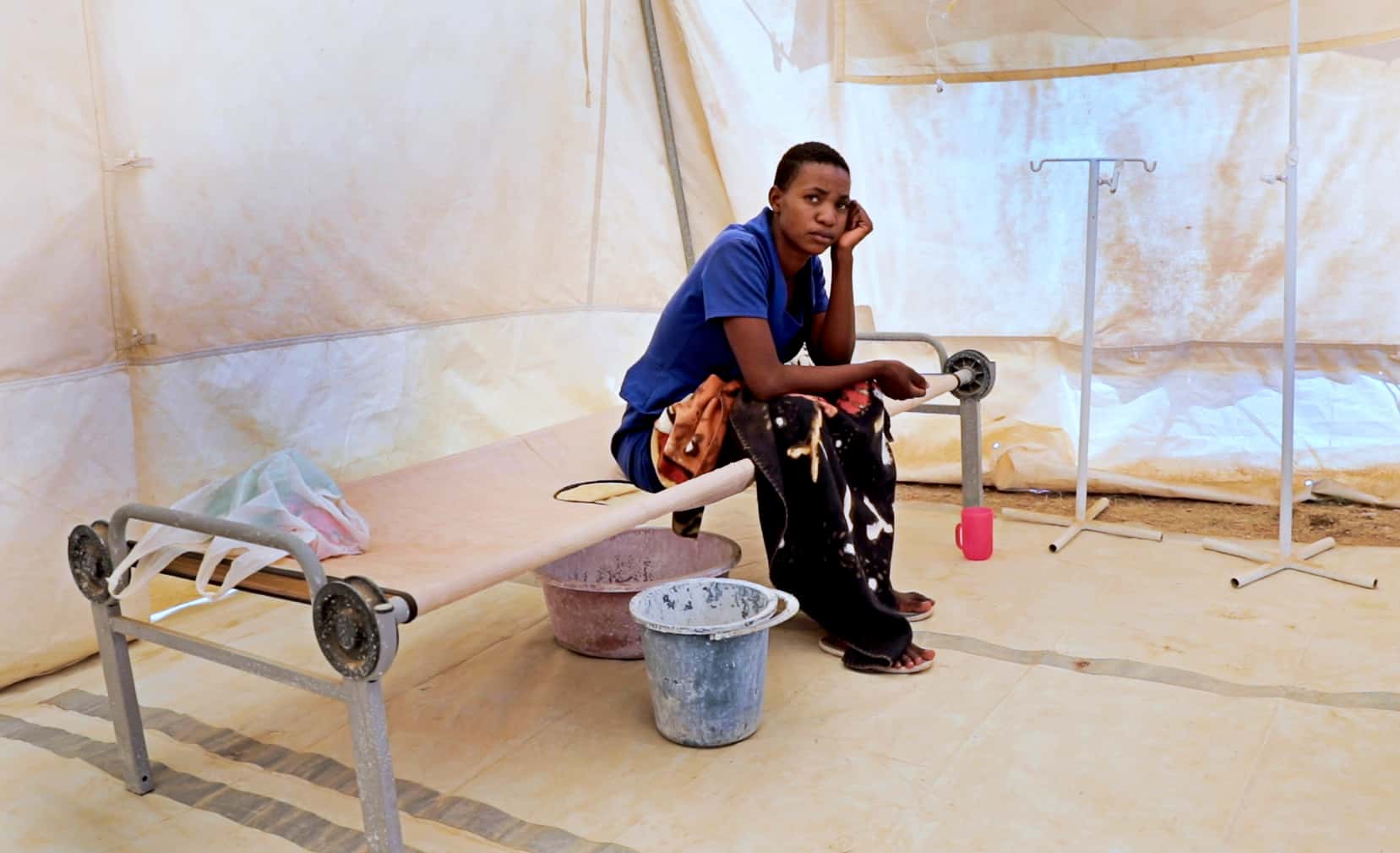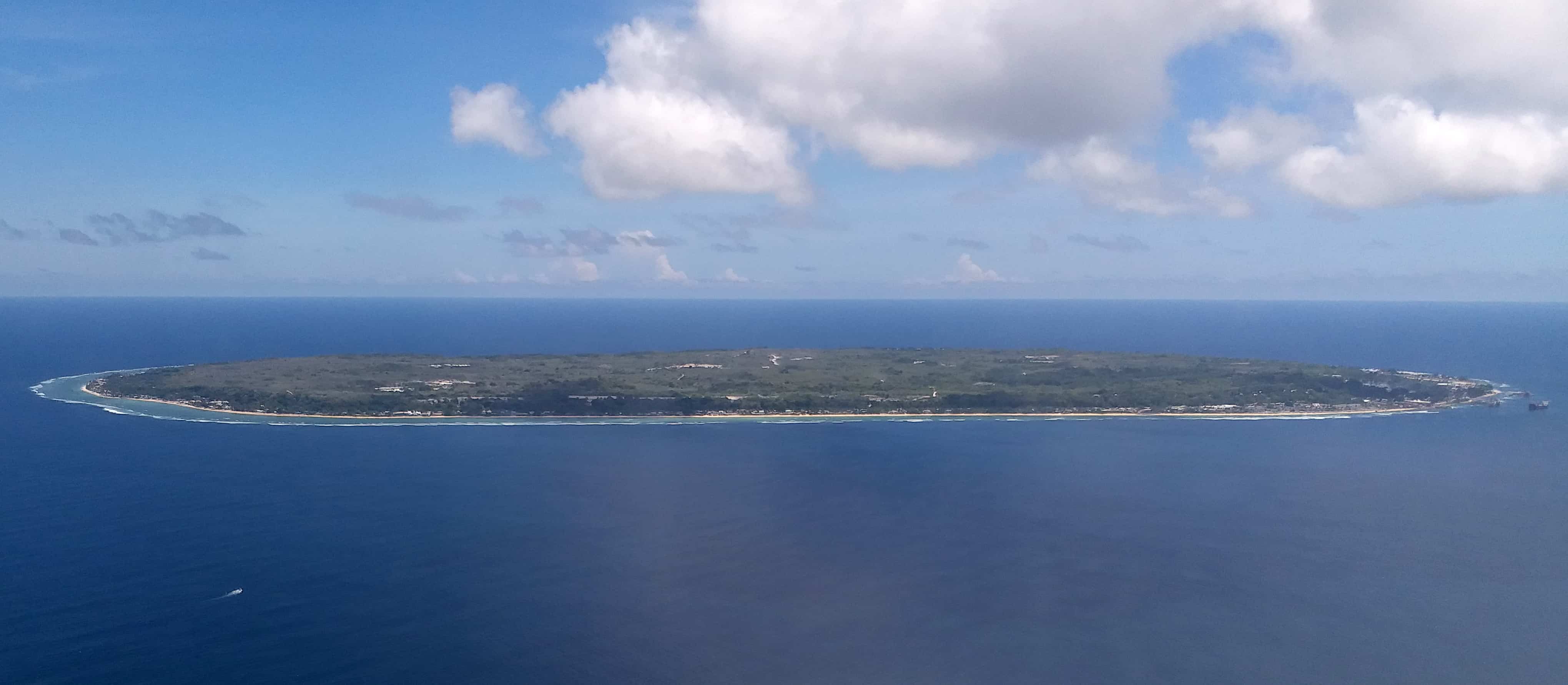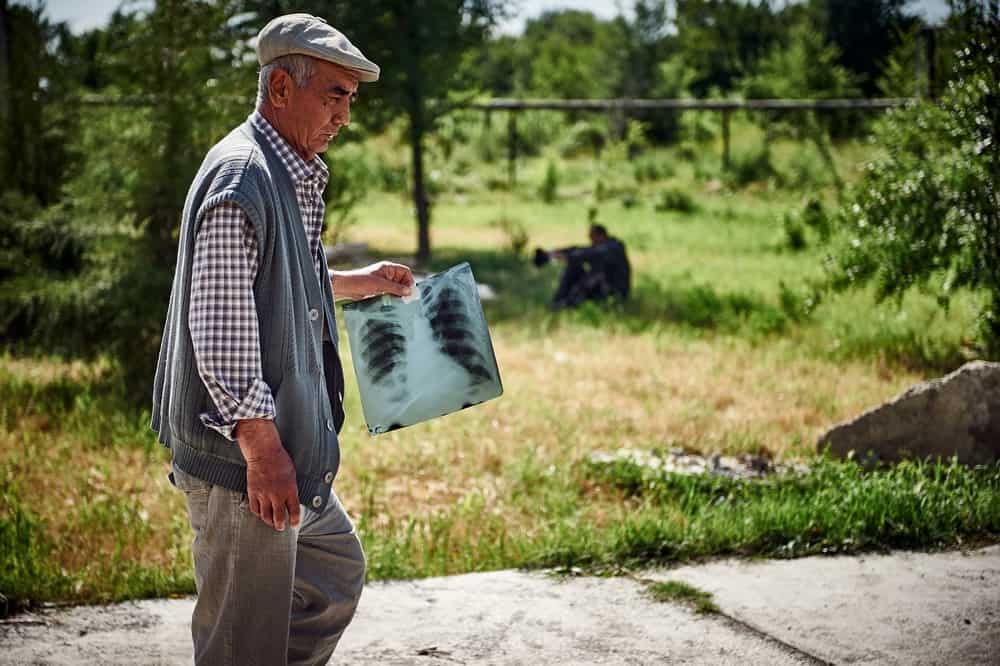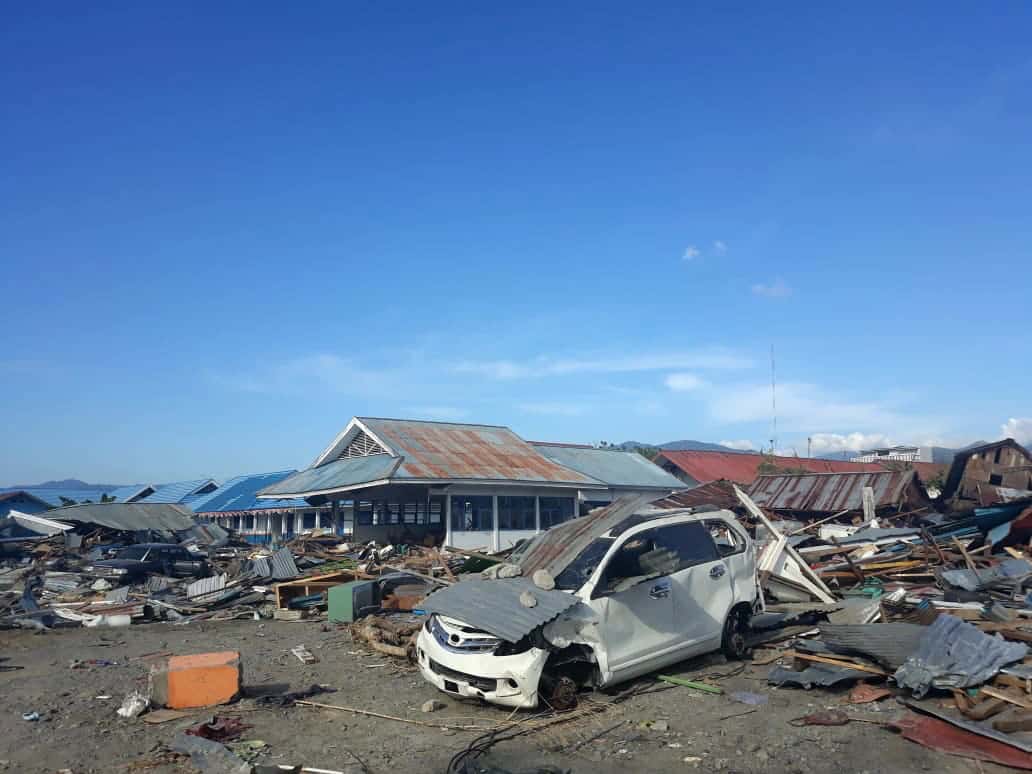Cholera in Harare; high price of lifesaving TB drugs; emergency response in Central Sulawesi; and other stories you might have missed this month.

A patient at a cholera treatment centre set up by MSF in Harare, Zimbabwe.
An outbreak of cholera was declared in Harare in September, and over 9,000 patients have suspected cholera. It is Zimbabwe’s fourth cholera outbreak this year, and the second largest outbreak of the disease the country has seen. The disease has already claimed the lives of 43 people. MSF has been providing case management support, infection control, and technical and logistical support at two cholera treatment centres.
Photo: Marion Mossing/MSF

An aerial view of Nauru, a small island nation in the South Pacific.
On 5 October 2018, the government of Nauru informed MSF that our services were “no longer required” and requested that MSF end activities within 24 hours. MSF had been providing free psychological and psychiatric services in the country since November 2017 to refugees, asylum seekers and the Nauruan people. MSF strongly condemned the government’s sudden decision, and called for the immediate evacuation of all asylum seekers and refugees from the island.
Photo: MSF

In August 2018, the World Health Organization (WHO) recommended expanding the use of bedaquiline (produced by J&J) by making it a core drug for treatment of DR-TB. This change dramatically increases the number of people who should receive bedaquiline, and requires national TB treatment programmes to scale it up as part of the DR-TB treatment they provide. However, according to MSF’s new DR-TB Drugs Under the Microscope report, people with drug-resistant tuberculosis (DR-TB) continue to be deprived of today’s best-possible treatment in part because of high drug prices.
Photo: Helmut Wachter/13photo

The destruction wrought by the earthquake and tsunami that hit Central Sulawesi, Indonesia, on 28 September.
An MSF team from Indonesia is responding to medical and humanitarian needs in Central Sulawesi. In collaborations with the Ministry of Heath, MSF is concentrating its efforts on remote, rural areas. Our main priority is to support health centres in these areas, to help them resume basic healthcare activities and ensure the prevention of epidemics such as diarrhoea, skin diseases and measles.
Photo: MSF












